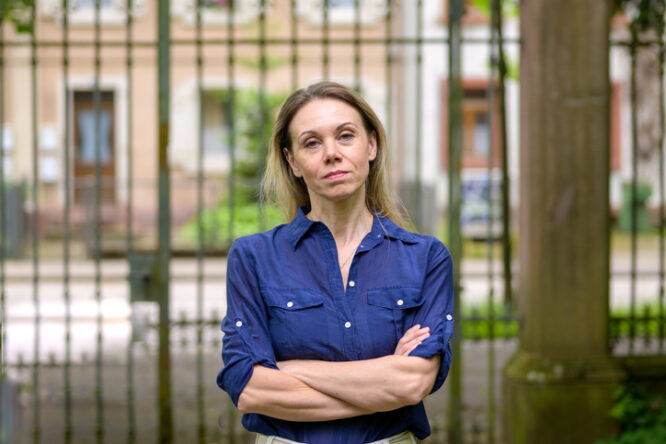There’s a certain type of behaviour we’re often told is “mature,” “healthy,” or even admirable, but sometimes, it’s really just emotional suppression in disguise.

A lot of people who seem well-adjusted on the surface are actually running on autopilot, masking deeper struggles or coping mechanisms they’ve never questioned. Just because something looks stable from the outside doesn’t mean it’s coming from a grounded or healthy place. Here are some of the behaviours that often get praised but might be masking stress, exhaustion, or emotional burnout.
They never ask for help.

We tend to admire independence, but there’s a fine line between being self-sufficient and silently suffering. People who never reach out often do so because they’ve learned not to rely on anyone—it didn’t go well in the past. It can look like strength, but it’s often built on a quiet belief that their needs are a burden. That kind of independence can be lonely, not liberating.
They keep the peace at all costs.

Being the calm, agreeable one in every situation might seem mature, but it often comes from fear. If someone avoids conflict completely, it’s usually because they’ve learned that speaking up leads to trouble or disconnection. They may have spent years being the peacemaker in their family or relationship, and now they don’t even realise when they’re suppressing themselves to make other people more comfortable.
They always play the “strong” one.

You know the type—always holding things together, never cracking. But constantly playing the role of “the strong one” can become exhausting, especially when they feel like they can’t ever break down. They often end up emotionally isolated because everyone assumes they’re fine, even when they’re deeply struggling. Sometimes, strength is just very quiet survival mode.
They stay productive, even when exhausted.

Hustle culture glorifies non-stop productivity, but being constantly busy isn’t always a flex. Sometimes, it’s just a way to avoid your feelings. If someone can’t sit still or rest without guilt, they might be equating their self-worth with how much they can do. And that’s not health—it’s burnout waiting to happen.
They don’t talk about their past.

Someone might say, “Oh, the past is in the past,” like they’ve moved on—but that doesn’t always mean healing has happened. It can mean they’ve just locked those memories away where they can’t be touched. When there’s no space to talk about what shaped them, it usually means there’s still some shame, pain, or confusion around it. And healing often starts where the silence ends.
They forgive too quickly.

Forgiveness is powerful—but only when it’s real. If someone rushes to forgive every time they’re hurt, chances are, they’re skipping over anger or sadness they don’t feel safe enough to process. They might fear losing someone or causing conflict if they set boundaries, so they brush things off in the name of keeping the peace. But deep down, that forgiveness often feels empty.
They’re “always fine.”

Saying “I’m fine” is the classic emotional armour. Some people use it so often they stop even checking in with how they really feel—it becomes a reflex. However, underneath the surface, they’re usually holding a lot. Being “fine” all the time doesn’t mean they’re okay. It often means they don’t feel safe enough to say they’re not.
They take pride in not needing anyone.

There’s a difference between enjoying your own company and keeping people at a distance. Some people are fiercely proud of being independent—but it’s less about freedom and more about fear. Needing other people might have felt unsafe before, so now they avoid it entirely. However, being untouchable often means being unreachable, too, and that’s not connection.
They never take things personally.

It sounds mature to “rise above” everything, but constantly detaching from emotional impact isn’t always healthy. Sometimes, it’s just a sign they’ve trained themselves not to react, even when something hurts. That kind of emotional numbness can look like wisdom from the outside. Of course, inside, it often feels like isolation or chronic self-doubt.
They handle everything themselves.

Being capable is great—until it becomes a trap. If someone always takes care of everything on their own, never delegates, never leans on anyone, it’s usually not just pride. It’s protection. They might have learned early on that asking for help led to disappointment or criticism, so now they don’t risk it at all. But even the most capable people need support too.
They dismiss their own emotions as “silly.”

Some people will talk about their feelings only to follow it with, “But I’m probably just being dramatic.” That’s not modesty—that’s self-invalidation. When you grow up in an environment where feelings weren’t welcomed, you start to question them. Calling your emotions “silly” is often just a reflex you picked up to protect yourself from judgement.
They always “rise above” everything.

Staying calm and collected might seem like emotional mastery, but if someone never reacts, never sets a boundary, and always brushes things off, it can be a red flag. Not everything needs a meltdown, sure. But pretending nothing ever gets to you is usually a sign you’ve gone numb to protect your peace.
They rely on logic over emotion—always.

Leaning on logic is often praised, especially in tough situations. The thing is, if someone constantly intellectualises every emotional moment, it’s often because they don’t know how—or don’t feel safe—to feel it. It’s easier to rationalise than sit with raw pain. However, healing doesn’t happen in the brain alone. It needs space in the heart, too.
They rarely show when they’re struggling.

Some people are masters at hiding what they’re going through. They joke, they keep busy, they carry on like nothing’s wrong—even when everything inside them is screaming. They’re often the ones checking in on other people, but never getting checked on themselves. Because they’ve made invisibility their armour, and most people don’t even realise it.




